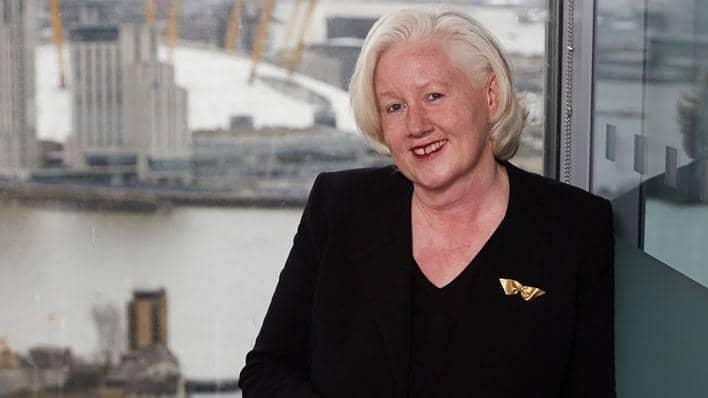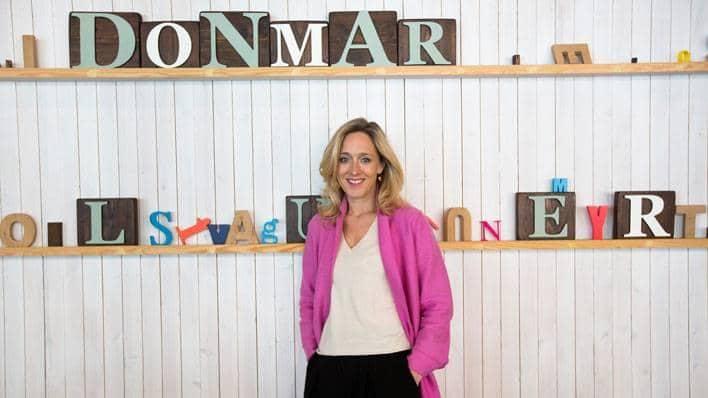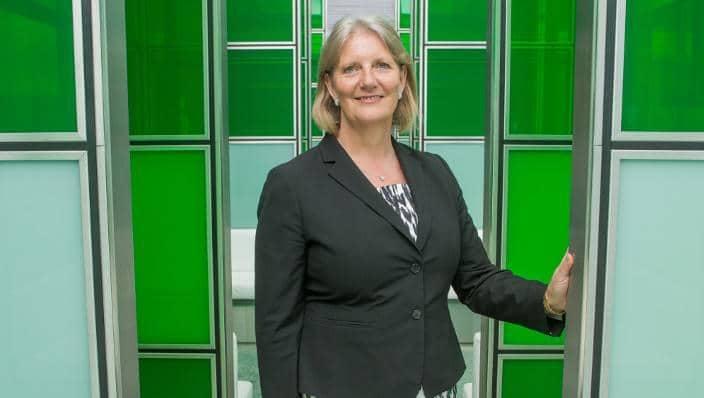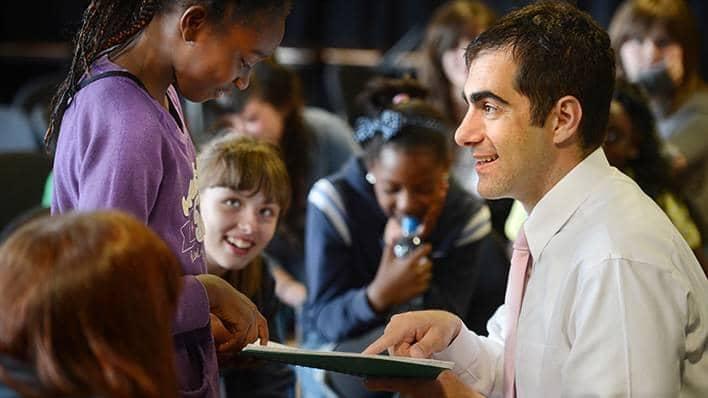
Leading Questions: Chi-chi Nwanoku
Chi-chi Nwanoku is the founder of the Chineke! Orchestra and was named ‘Person of the Year 2016’ at the Barclays-sponsored Black British Business Awards

Catherine McGrath knows what it’s like to have your opinions “discounted” by the most senior voice in the room – but for her, feedback is “a gift”, and in a successful and motivated team, it should flow both ways.
What were your early career experiences, and what did you learn about leadership as you rose up the ladder?
My first job, when I was 14 and in New Zealand, was working in kitchens and doing the dishes. I learned quite a lot about customer service and I also learnt the benefit of wearing flat shoes.
My first banking job was in the marketing team at the Bank of New Zealand. Marketing teams there are a lot smaller than here, so I got a very broad role very young. I did products, pricing and propositions. The leadership at the time was bright, optimistic and unrelenting in its pursuit of making a difference in the country’s landscape. So, I got to work with some really smart people and learnt a lot about teams.
I’d never been overseas, and I decided to take a six-week holiday and came over to the UK. When I got back to New Zealand I couldn’t settle, because I’d seen the rest of the world, and although the world I lived in was amazing, it was small. So, I came back, and ended up working in Glasgow for National Australia Bank group. I was working with external consultants for the first time, and they had a very hierarchical structure where the most senior voice always carried the most weight.
It was quite an interesting reflection, because I had never – even when more junior – had my voice discounted for not being the most senior person in the team. It was useful at that point to learn that the most senior voice in the room wasn’t always the smartest, the best or the most insightful.
It made me thoughtful that, as you become more senior, you risk stopping hearing things. One part of that is that people stop telling you things. And you risk believing that you’re the most sensible person in the room on all points. You have to say to yourself: “I do have a view on that but actually I need to pause and listen because the team have spent a lot more time thinking through this than I have.”
My team absolutely coach me as much as I coach them. If you choose to recognise that you’ve still got plenty to learn, then at your best you listen to things.
Have your major lessons come from below, from peers or from above?
They come from all directions. Recently, we were having a conversation about aggregation. Some of the grads were in the room and talking about how they’re using apps to manage their money and money habits, and their relationship with the organisation they’ve got their money with. And sitting there, I learnt a huge amount in a pretty short time. I learn a lot from getting those different perspectives.
My team absolutely coach me as much as I coach them. If you choose to recognise that you’ve still got plenty to learn, then at your best you listen to things. Even at your worst, when you don’t listen at the time, you listen a few hours later.
Your role is ‘big picture’, how do you avoid losing sight of the on-the-ground reality?
I feel an incredible responsibility that we have 14 million customers who trust us with their banking. And banking and how our banking works is an intrinsic part of our lives, which we don’t think about very much but our life doesn’t work very well without it. The team and I make choices that can impact people and impact them materially. You can take that as an academic exercise or you can take that with absolute seriousness.
We have council structures, which I love because you get the most relevant leaders in our business and functions in a room together every week. In one of the off-sites we focused on fraud. We had colleagues in the room with us as well as customers, and whilst I knew that fraud experiences are hard for customers, it really resonated to hear someone say: “I felt violated. I felt like a victim.
I want it treated with the same level of seriousness as a crime I’d report to the police. Even if you get me my money back within 24 hours, I still want to know that you’re managing the crime, and what happened to the people who did it.” You just get a whole new level of insight from choosing to have that conversation, and we try to do that often.
I’ve learnt a huge amount from Barclays. If you think of how much our thinking is stretched, that’s the leadership at Barclays pulling apart established thinking and being unrelenting in trying to deliver great outcomes for customers. That’s been concentrated here in a way I’ve never seen before.
Is there a leader you admire?
There are many. Both my parents and some of my broader family members were great examples to me. I had a job working in my dad’s accounting firm and got to see my father in a different light, in more of a leadership position. What resonated for me about that was the respect the team had for him. Seeing the relationships he had with his team and how they worked together was an important foundation for me.
Different bosses give you different experiences and lessons. A really important one for me is the idea that “feedback is a gift” – which comes from a boss at Clydesdale who wrote notes on stickies that he’d discuss with me after every meeting, saying which bits I’d done well and which bits I could have done better. It was brilliant because you got feedback immediately after the meeting and could work out exactly how you could improve.
I’ve learnt a huge amount from Barclays. If you think of how much our thinking is stretched, that’s the leadership at Barclays pulling apart established thinking and being unrelenting in trying to deliver great outcomes for customers. That’s been concentrated here in a way I’ve never seen before.
When you move department or company, what do you do to make sure a new team is behind you?
The first thing I do is attempt to understand the team. I don’t want to take anyone else’s input on that to begin with because everyone has their own perspective. So, spend time one-to-one, and understand what makes them tick both inside and outside work – what they’re proud of, what they’re worried about, where they want to go.
The next bit is understanding how they’re doing in their job. What I said to my team was: “In the early days, I’ll be asking a lot more questions and spending more time with you, because I want to understand how you think about your business. I’d rather understand by talking with you than by reading a billion PowerPoint documents. I want to understand how you think and how you approach things.”
I’ll also make sure they know it’s a two-way process: “Here’s what it’s like working for me. Here’s me at my best, here’s me at my worst. And when you see the latter, tell me about it, because you giving me feedback is a really important part of how I learn and how we progress as a team.” If you can get that trusted dialogue between you and your team early, it makes leading a team pretty special.

Chi-chi Nwanoku is the founder of the Chineke! Orchestra and was named ‘Person of the Year 2016’ at the Barclays-sponsored Black British Business Awards

Kate Pakenham is the Executive Producer at the Donmar Warehouse, a not-for-profit theatre in Covent Garden, London, of which Barclays is the principal sponsor

In our regular series looking at what it takes to be a good leader, we speak to Dena Brumpton, CEO of Barclays Wealth & Investments UK

Brett Wigdortz originally planned to take only six months out from his job as a management consultant to draw up the business plan for Teach First, the charity that strives for better education for pupils from low-income backgrounds